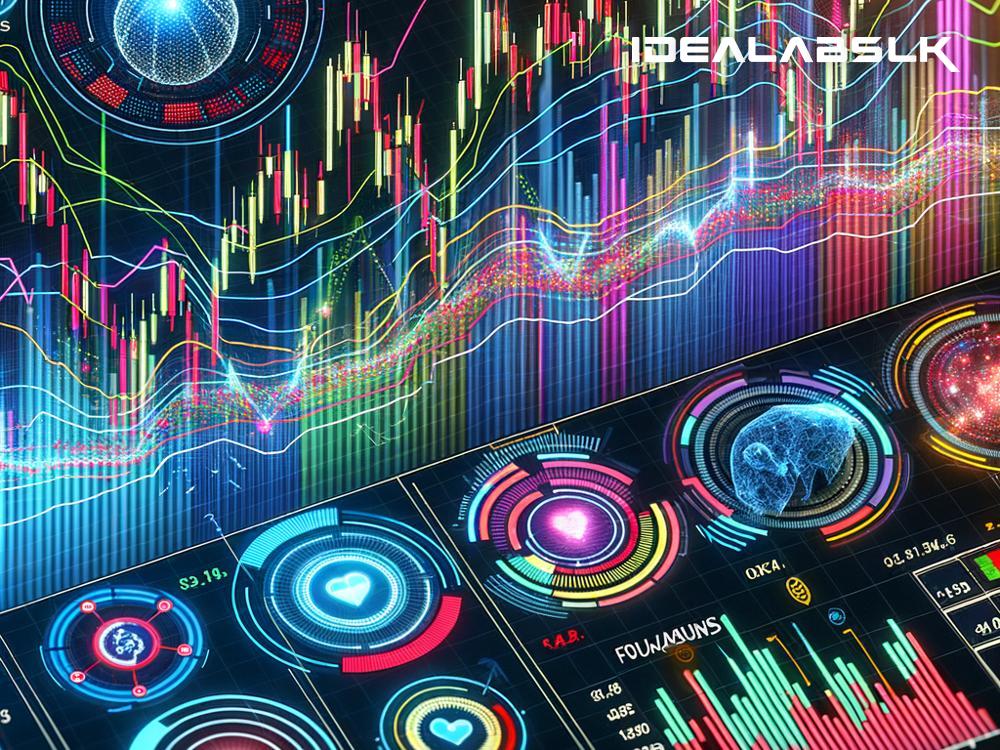AI for Trading: Unlocking the Power of Predicting Market Volatility
In today's fast-moving world, the stock market is like a rollercoaster. Prices go up and down in the blink of an eye, making it a thrilling ride for investors. But here's a thought – wouldn't it be great if we could have a sneak peek into how this rollercoaster might move? That's where Artificial Intelligence (AI) steps into the picture, especially when it comes to predicting market volatility. So, let's break down how AI is changing the game for traders and investors by forecasting the twists and turns of the stock markets.
The Magic Behind AI in Trading
Imagine having a super-smart friend who could analyze vast amounts of data, spot patterns, and make predictions in seconds. That's essentially what AI does for trading. It sifts through mountains of market data, including price movements, trading volumes, and even news articles, looking for clues on how the stock market might behave. This capability is not just impressive; it's revolutionizing the way trading decisions are made.
Why Predicting Volatility Matters
Volatility is a fancy term for the ups and downs in stock prices. High volatility means prices are moving dramatically, while low volatility indicates more stable and predictable price movements. Understanding volatility is crucial because it affects how risky an investment might be. If you're investing in a stock that's highly volatile, you're essentially signing up for a bumpy ride, hoping for high returns.
Predicting volatility helps traders manage risks and strategize better. If you know a stock is going to be particularly bumpy, you might decide to fasten your seatbelt and prepare for the ride or maybe choose a different ride altogether. That's the kind of insight AI provides, giving traders and investors a crucial edge in their decision-making process.
How AI Predicts Market Volatility
So, how does AI do it? How does it predict the unpredictable? Here are a few ways:
-
Historical Data Analysis: By examining past market data, AI can identify patterns or trends that indicate upcoming volatility. This approach is based on the idea that history often repeats itself in the stock market.
-
Sentiment Analysis: AI algorithms can scan news articles, social media posts, and financial reports to gauge the mood or sentiment towards a particular stock or the market as a whole. Positive sentiment might indicate stability, while negative sentiment could signal volatility.
-
Machine Learning: This is where AI truly shines. Machine learning allows AI systems to learn from data over time, getting better at making predictions as they're exposed to more information. This means AI's forecasts of market volatility become more accurate with every bit of data it analyzes.
The Benefits of Using AI for Predicting Volatility
-
Better Risk Management: Knowing when volatility is expected can help traders manage risk more effectively, protecting their investments from unexpected market swings.
-
Improved Trading Strategies: With insight into potential volatility, traders can adjust their strategies, choosing the right time to buy or sell for maximum profit.
-
Time-Saving: Analyzing market data manually is time-consuming. AI does it in seconds, freeing up time for traders to focus on other important aspects of their investment strategy.
-
Emotion-free Decisions: AI makes predictions based on data, not emotions. This can help avoid panic selling in volatile markets or buying into a hype without solid backing.
Challenges and Considerations
While AI offers impressive capabilities, it's not without its challenges. Predicting market volatility is complex, and even AI can get it wrong sometimes, especially in the face of unforeseen events like geopolitical tensions or natural disasters. Also, reliance on AI predictions without understanding the underlying data or market can be risky.
Final Thoughts
AI for trading, particularly in predicting market volatility, is like having a crystal ball. It doesn't guarantee that you'll always make the perfect trade, but it provides valuable insights to navigate the stock market's twists and turns more confidently. As technology advances, AI will become an even more integral tool for traders and investors seeking to understand and predict market dynamics. The future of trading, it seems, belongs to those who harness the power of AI effectively. So, whether you're a seasoned trader or just starting, exploring AI's potential in your investment strategy might just be the edge you need in the ever-volatile stock market.

